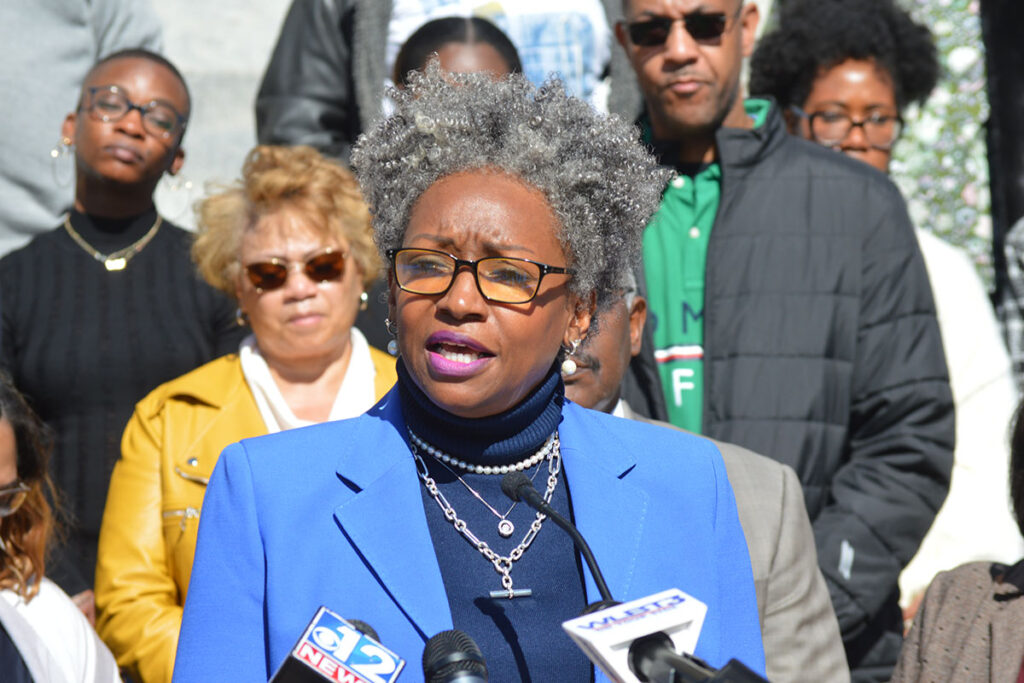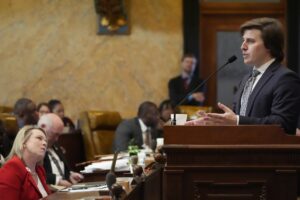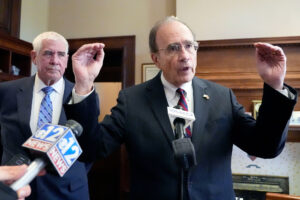JACKSON, Miss.—Mississippi Delta communities deserve equitable broadband access and transparency as the State decides how to use a $1.2 billion federal grant for expanding high-speed internet infrastructure, a coalition of activists and residents from the Magnolia State’s most impoverished region said from the steps of the Mississippi Capitol Building this week.
The Delta is Mississippi’s most impoverished region and many residents still lack broadband access.
“Oftentimes people come to the Mississippi Delta from outside of the Delta and tell us what they think we should have,” Mississippi House Rep. Otis Anthony, D-Indianola, said on Monday. “But this is what we’re looking for: We will continue to emphasize the importance of equitable broadband access for all of our communities.”
In June 2023, the U.S. Department of Commerce National Telecommunications and Information Administration announced a $42.45 billion grant program focused on expanding high-speed internet access in all 50 states as part of President Joe Biden’s Investing in America Agenda.
‘We Must Close This Digital Divide’
Communities across Mississippi have dealt with a lack of access to reliable broadband for years. That reality hit residents hardest when the COVID-19 pandemic led to restrictions on in-person work and school, requiring children and adults alike to access their work virtually.
Rep. Anthony said on Monday that if those funds are used to increase broadband access equitably, it will mean better health-care services, public education and workforce development opportunities in Mississippi’s rural communities.
“We must close this digital divide,” Anthony continued. “Equitable access to broadband ensures that every corner of Mississippi—I can’t stress that enough, every corner of Mississippi, including those underserved minority communities—have the same access, the same educational and economic opportunities as those in urban areas.”
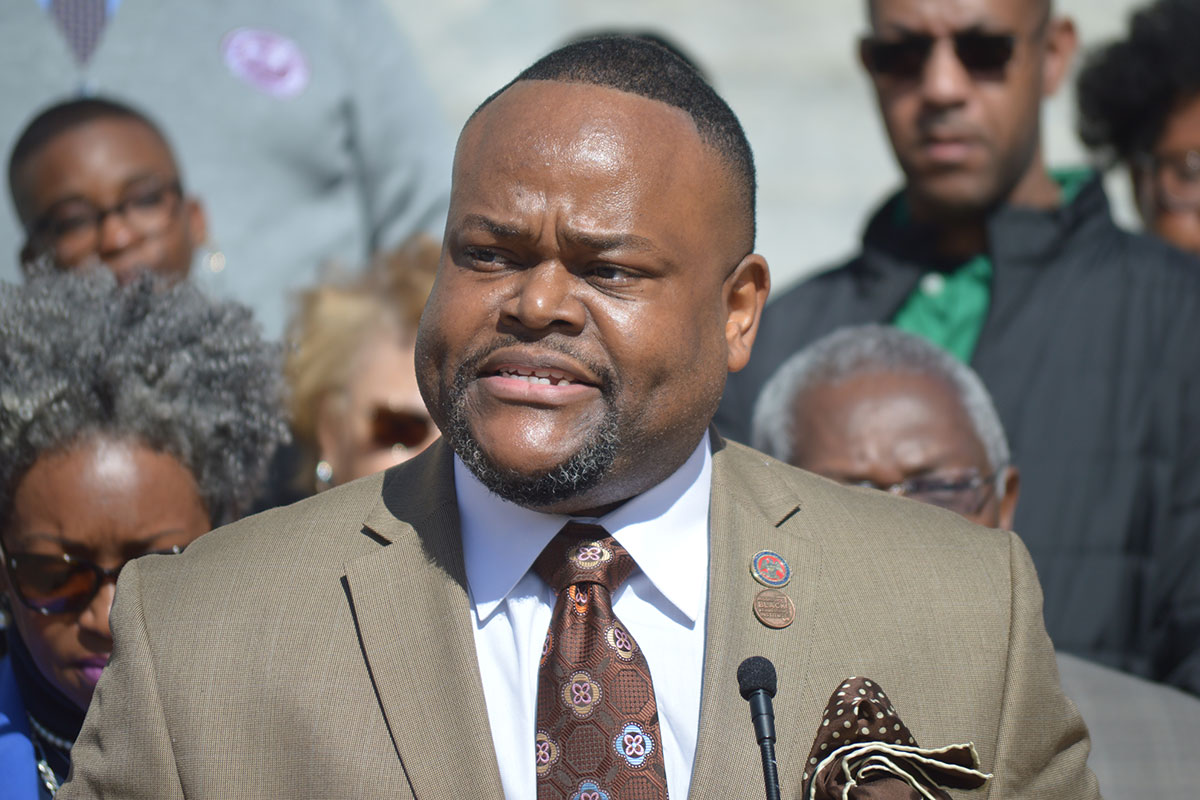
Activists said BEAM failed to adequately engage Mississippi’s underserved communities in conversations about their plans. BEAM’s Five Year Action Plan outlines over 20 community engagement meetings the agency held across the state, including six in the Delta, and highlighted feedback they say stakeholders offered as concerns.
The meetings “were attended by local elected officials, community leaders, non-profit representatives, and residents across the State,” the plan states.
“These meetings only reached a fraction of the broadband deserts in our 82 counties. There remain many communities whose voices on the direction and accessibility of broadband have not been heard,” Hope Policy Institute Vice President of Policy and Advocacy Director Kiyadh Burt said on Monday.
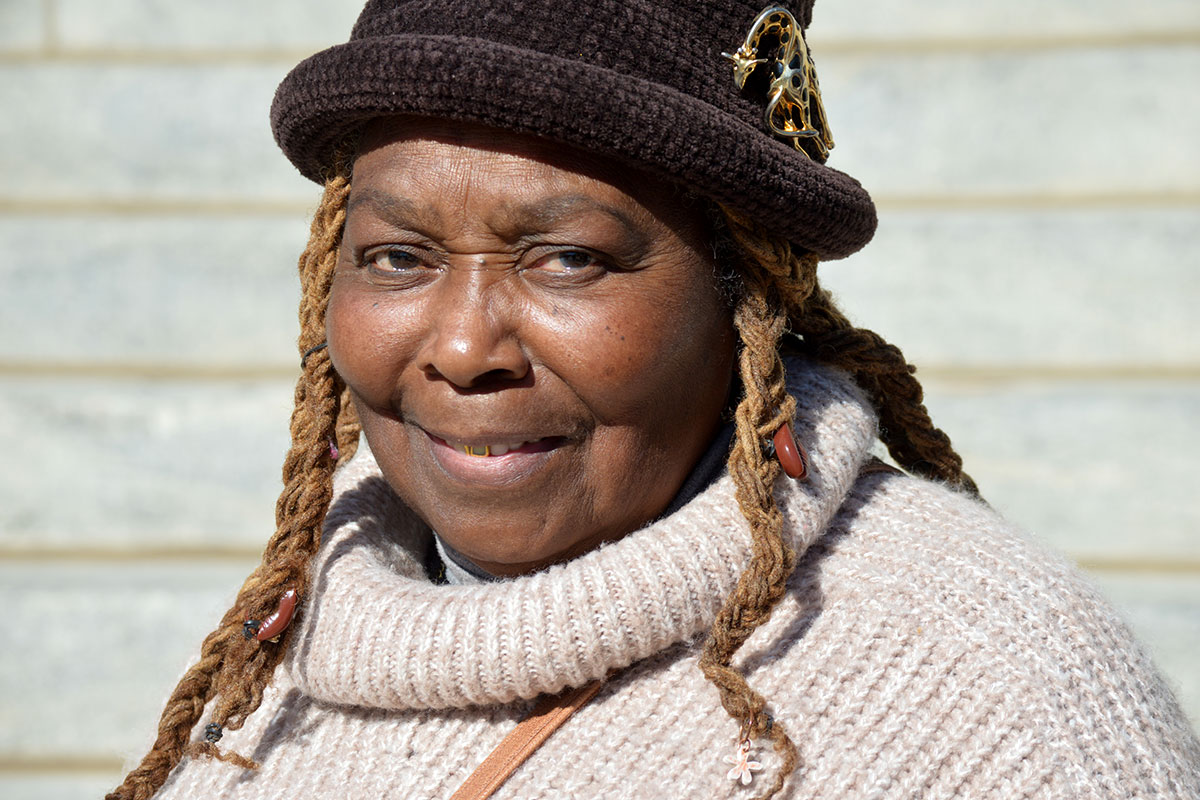
Bobbie Miller, a former mayor of Isola, Miss., said that community members often feel like local and state leaders make changes before residents have an adequate opportunity to provide input.
“They have their meetings and get together on what they’re going to be doing but they don’t really involve the community,” Miller told the Mississippi Free Press on Monday. “It leaves us out and we have to accept whatever it is that they dish out to us.”
‘We’ve Been All Over The State’
The Legislature established the Office of Broadband Expansion and Accessibility of Mississippi in 2022 and Gov. Tate Reeves appointed former Mississippi Sen. Sally Doty, a Brookhaven Republican, to lead the agency. In an interview with the Mississippi Free Press on Feb. 6, Doty said she’s puzzled by the narrative that the money won’t be spent in the areas where there is a lack of broadband access.
“We are trying our best to be as open and transparent as possible,” she said. “I want to dispel this worry or concern that this money is not going to go to unserved areas and it’s not going to go to the Delta. It is. That’s what this money is provided for.”
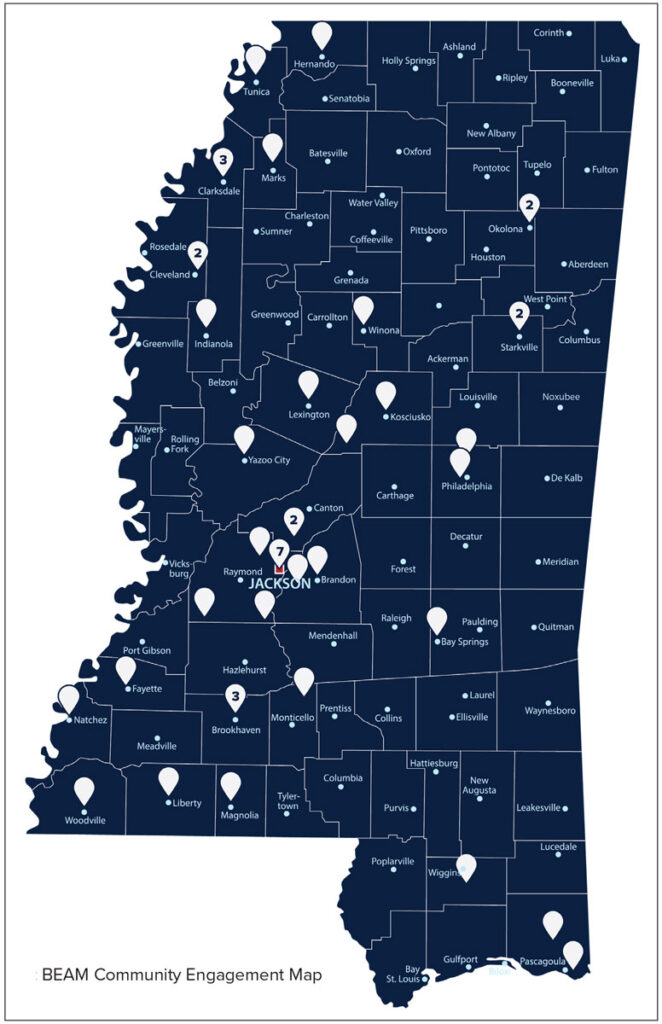
The agency’s director pushed back on the idea that residents weren’t given opportunities to provide feedback about their broadband accessibility needs and cited challenges BEAM faced while trying to host community meetings in the state’s most rural areas.
“There’s the allegation that we haven’t met with enough of the community. We’ve been all over the state of Mississippi. I’ve been to the Delta myself 20 times,” she said. “The unserved locations are pretty rural and it’s just hard to find a meeting place to accommodate everyone.”
Doty said the agency has sent several proposals and plans to the National Telecommunications and Information Administration; officials there will now decide whether or not to approve the plans. In March, BEAM will open a challenge process that will allow non-profits, local governments and broadband service providers to offer their perspectives on service data maps that the agency has drafted using feedback from stakeholders about the areas with the most needs.
On the steps of the Mississippi Capitol Building on Monday, Mississippi Center for Justice President and CEO Vangela Wade said that if BEAM allocates the funds equitably, it could spark economic growth for the state’s most underserved communities.
“It is imperative that the BEAM office develop and implement a transparent and equitable grant program that properly addresses the needs of Mississippi’s low-income and marginalized communities,” she said. “Otherwise, funding will only benefit high-income, well-resourced communities or those areas our state leaders have marked for economic development at the obvious exclusion of other economic, education and health-care deserts such as the Mississippi Delta.”


